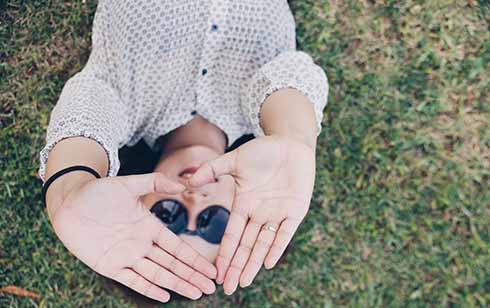‘’ ’Tis better to have loved and lost than never to have loved at all’
That quote is Alfred Lord Tennyson’s stance on the opportunity cost of love. Now you might be asking, why are you mentioning economics in an article about teen romance?
Let me give you some economic theory in a nutshell: opportunity cost is the price you pay for taking a course of action. For example, buying mint ice-cream instead of vanilla. The price you pay for having mint is that you can’t have vanilla.
Apply that to love the quote says that it is better to have loved and lost than never loved at all, which showcases a certain choice in the opportunity cost of love. The author has chosen to love and accepted the possibility of loss rather than to have not loved and not have to risk heartbreak.
I say all this because a lot of teens don’t realise, you have a choice. You don’t have to love. You don’t have to post pictures of your relationships on Instagram and record videos of you and your girlfriend dancing on Tik Tok. If all of your friends are in a relationship, there shouldn’t be pressure on you to be in one too. You shouldn’t feel left out or alone because of your relationship status, nor should you base your self-worth and the worth of others on whether they’re in a relationship or how many people they’ve been with.
Worry about being the best person you can be, not about the best person you think a girlfriend can make you.
This next section is for people who’ve chosen to be in a relationship, not to boost their ego or inflate their self-worth, but because they found someone they like and they want to get closer to them. Because that’s love – it isn’t about how you think, it’s about how you feel.
I can’t claim to be an expert as I haven’t been on more than a few dates here and there, but I’ve observed a few things from the people around me.
One thing I know is that girls talk to each other. They text all the time. If you’re trying to flirt with multiple girls at once, it’s not going to work out with any of them. It’s also just poor manners.
Another observation – love is a lottery. Meaning, sometimes you will just be unlucky.
As a personal anecdote, I once went on a rather nice date with a girl, we both had fun and afterwards she texted and said we should do something similar again. She blocked me three hours later.
I ran into her a few months after the incident and asked why she did it. She said she just felt overly nervous and forgot that she had blocked me.
If something like that happens, don’t take it personally. Emotions are confusing and being teenagers makes those emotions even more perplexing. Dwelling on something you can’t change doesn’t help anyone.
Look, love is a difficult thing, and you are going to struggle with finding yourself and someone who you really fit with throughout your adolescent years. If you’re really looking for a long-term and meaningful relationship, there are dozens of websites and a million Instagram dating help pages but only one true necessity – you have to be kind.
OK, there’s one more thing you can do – learn to play guitar. You can’t jump over her walls without some ‘Wonderwall’.
Clears throat – ‘Backbeat, the word is on the street . . .’ [Thanks Oasis]
– Sam Waters
A healthy self-ship for a healthy relationship
 When we’re young, we don’t always know exactly who we are, which is OK. But when you enter the world of dating and relationships, not having a strong sense of yourself and your own needs can make it easy to fall into someone else’s world – which is not a very healthy place to be.
When we’re young, we don’t always know exactly who we are, which is OK. But when you enter the world of dating and relationships, not having a strong sense of yourself and your own needs can make it easy to fall into someone else’s world – which is not a very healthy place to be.
People who have had less-than-healthy relationships in the past find it a weird shock to the system when they find a partner who shows them respect and communicates with them openly.
Approaching a healthy partner with a small issue to be greeted with a simple ‘yeah no worries, sorry’, as you generally should be, can be disorienting.
Having a strong sense of your own self, and how you should be treated by everyone in your life, can help you recognise whether a relationship is healthy or not.
One of the main green flags for a healthy relationship is knowing that not only the boundaries of all parties are set and respected, but they are also communicated. This can come in the form of a bigger conversation with someone, a few little conversations as you go, or a bit of both. The key word there is ‘conversation’. No one’s a mind reader, but you need to know your own boundaries to be able to set them.
One simple thing that can help is to spend five minutes thinking about what actually matters to you. What are your core values? Things that you believe in and want from life? What passions do you have, or even used to have once upon a time? Identifying and writing down the values and interests that you already have can guide you to recognising and maintaining your sense of self.
Look at the people in your life now who you care about, and who care about you. Nourishing these existing relationships with others is really important. Having a support system behind you, even one other person, can make a huge difference as we go through life.
While you may have a lot of things in common with a partner, spending bits of time apart is almost just as important as spending time together. Try to have at least one thing for yourself. It could be something artistic, driving, hiking, a friend you hang out with one-on-one regularly, different hairstyles, you name it. If you value and enjoy it, cultivate it. It’s lovely when our partners show interest as well. You don’t have to totally shut them out. But know it’s something that you care about. You are a whole, sensational person on your own. Cheer yourself on.
– Sinead Goodfellow
Young love that hurts
 For eight months of my teenage life I was in an unhealthy relationship. Being in a healthier one now has taught me to recognise what was wrong previously.
For eight months of my teenage life I was in an unhealthy relationship. Being in a healthier one now has taught me to recognise what was wrong previously.
The eight-month relationship was with a boy I truly loved, but the truth is, I was treated like another one of his friends, which was a red flag I couldn’t understand at the time. Now, after breaking up I understand that my relationship with him was put on a pedestal, and my personal needs and boundaries were ignored. I was embarrassed to admit this, but to any young person listening, this is unhealthy.
A romantic relationship should not be one-sided, dependent or painful. While I was blinded by the happiness he brought, I was generally ignoring how damaged I was becoming.
When watching romantic film and TV shows, we dream of our own lives being beautiful, which may result in us ignoring what is in front of us. The reality is that a relationship is more than just a story on a screen.
Teenage girls are immersed in a world of interconnectivity, and social media is a large part of that. I saw my relationship with this boy as my whole world, similar to what I saw in movies, which meant I wasn’t able to see red flags and pushed aside my own needs and boundaries.
Caring for your needs does not make you selfish; it prepares you for when you are faced with things that are confronting, and it builds respect for yourself and for your needs. Within our eight-month relationship, I lost those.
The current relationship I am in is blooming. I don’t feel responsible for his mental issues, I am able to speak up for myself without fear of an argument, and most importantly I am able to speak about concerns I have.
I want to stress to other teenagers how much you matter in a relationship. Navigating that is scary because like other things it requires a balance. Being open-minded, honest and communicative are values I learned from the best source of my life – my mother. She helped open my eyes when things were tough. I sought her advice more often than my own judgment. There is one quote from my mother that stuck with me.
‘A person can only do so much, so it’s valuable to recognise their needs, but vital to stand by your own.’
– Teagan Brunner
REFLECTION QUESTIONS AND ACTIVITIES
Dear teenager... - questions and activities
Read Dear teenager... (from the Summer 2021 edition of Australian Catholics) and take part in the following questions and activities.